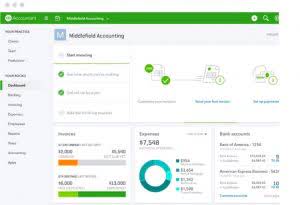
Capturing these fluctuations accurately requires careful consideration of historical trends and external drivers, which can be difficult to account for consistently. To prepare a comprehensive hotel budget, you need to delve deep into both your revenue streams and expenditures to create a complete hotel budget format. Budgets are not static documents; they balance sheet require ongoing monitoring and adjustments.
- Planning a hotel budget is not just a financial task; it’s a strategic task that impacts every aspect of your hotel’s operation.
- From there, Lund recommends getting into the details with zero-based budgeting as described above.
- The lasting impacts of the pandemic, along with new regulations, undoubtedly have transformed the hospitality workforce.
- This often stems from lacking a centralised platform for consolidation and streamlined workflows.
- This involves taking into account all the costs that a hotel incurs, including expenses like rent, hotel staff, and operating expenditures.
- Within this article, we will review the complexities of hotel budgeting, focusing on the essential components that form a foundation for a successful process.
- You can set up budgets within the application for each expense category and set limits.
The Importance of Hotel Budgeting in Management

This helps lower overall hotel costs and provides guests with a more eco-friendly stay. A successful hotel budget requires regular monitoring, especially when cash flow is tight. This way, you can catch any budget shortfalls early and adjust the budget to stay on track. As you know and can see from everything we covered, managing a hotel business can be a real headache. All things that require the owner and/or hotel manager to be constantly on top of budgeting. Total revenue management is a pivotal aspect of budgeting, where meticulous planning and strategizing can substantially impact your property’s financial outlook.
- Creating a budget involves input from various departments within a hotel, such as sales, marketing, finance, and operations.
- Hotel revenue management also improved, leading to higher occupancy rates and better financial performance.
- Hotels can use dynamic pricing to set different room rates based on demand and availability.
- People often use the word “expenses” to describe everything that costs something.
- A hotel’s group business segment can have a significant impact on its annual budget.
- “We typically aim to present the budget to a couple of different levels of management within the organization and then finally present it to ownership by November,” Lund said.
Common Challenges in Hotel Budgeting and Forecasting
Guest feedback helps hotels learn about what matters most to their guests and areas that need improvement. The lasting impacts of the pandemic, along with new regulations, undoubtedly have transformed the hospitality workforce. However, with so many departments involved, businesses may become entangled in endless email chains and budgeting files, resulting in fragmented and lost data.
Advice for the 2024-2025 hotel budgeting season

Your goal is to project the expenses to match the objectives you have just derived. The company’s income statement, balance sheet, or bills can be useful as supportive documents. Compare the data with previous years to see if they hotel budget have increased due to controllable or uncontrollable factors.
Estimate operating revenues for the coming year
- We have thus far understood how a hotel budgets for revenue, expenses and profitability.
- Regularly track progress towards these goals and adjust tactics as required.
- Typically, the process starts with forecasting occupancy rates and room revenue.
- To do this, you’ll need to keep your finger closely on the pulse of the lodging industry.
- “They don’t show you what really needs to be in each category.” That’s why he recommends a third approach.
So before getting started with business budget planning for your hotel business, let’s look at the types of budgets that exist and the types of budgeting methods that hoteliers prefer. As hoteliers walk through the budgeting process year after year, we know it is the most stressful and challenging endeavor for both commercial and operations teams. Each year, we hope for a better process but many times, we fall short. Kim is a full-time copy and content writer with many years of experience in the hospitality industry. She entered the hotel world in 2013 as a housekeeping team member and worked her way through various departments before being appointed to Director of Sales. Kim has championed numerous successful sales efforts, revenue strategies, and marketing campaigns — all of which landed her a spot on Hotel Management Magazine’s “Thirty Under 30” list.
- Use the operational needs and revenue potential of each department as a guideline and allocate funds accordingly.
- A well-prepared budget enables a hotel to estimate its revenue and expenses for a given period.
- The first is that they make accurate projections based on the data you feed in.
- More importantly, the forecast is a monthly adjustment of the budget.
- Setting specific, measurable, achievable, relevant, and time-bound (SMART) goals is crucial for the success of any hotel’s budgeting process.
- The reason is that both revenue and expenses may be impacted by different factors.
Where to effectively spend your hotel’s budget (according to hoteliers)

Once https://www.bookstime.com/articles/how-your-business-can-accept-ach-transfers you’ve made all necessary adjustments, finalise the budget and distribute it to department heads for implementation. Ensure that everyone understands their budgetary responsibilities and performance metrics. From there, Lund recommends getting into the details with zero-based budgeting as described above. From this perspective, you might tell your teams that you expect to increase room revenue by at least 7% based on what you heard from your revenue manager. “Ensuring your teams are compensated on the most important metrics is key to aligning them on delivering your ultimate business goals,” Lund recommends.
